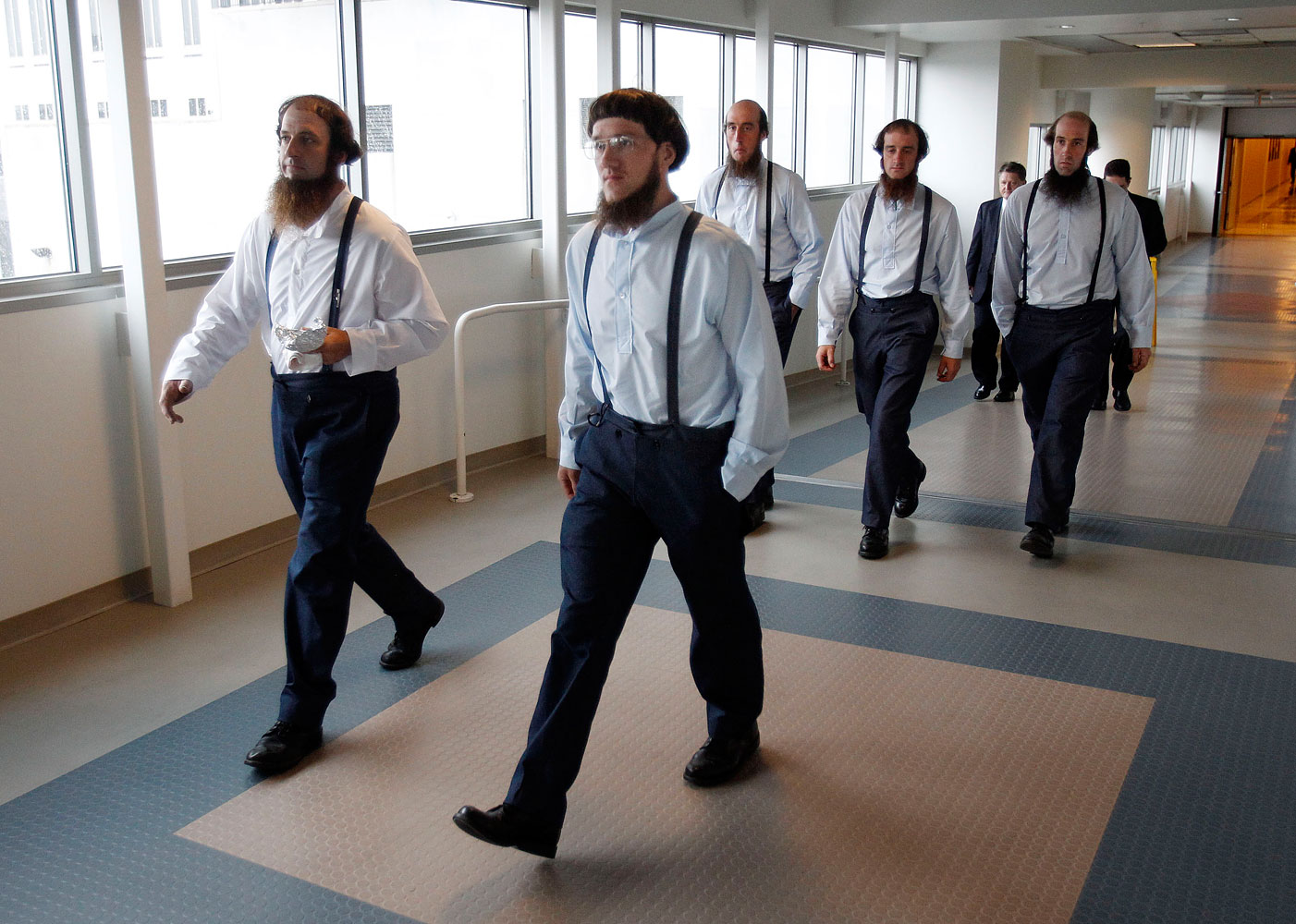
In the fall of 2011, 16 members (10 men and six women) of a breakaway Amish community in eastern Ohio executed five beard-cutting attacks on Amish people in other communities at night and by ambush over an eight-week period. The 16 defendants were convicted of federal hate crimes as well as lying to the FBI and obstructing justice. The US government built its case on the 2009 Matthew Shepard and James Byrd, Jr., Hate Crimes Prevention Act. Under this statute hate crimes occur when an assailant attacks a person because of his or her gender, sexual orientation, disability, race, ethnicity or religion.
After a three-week trial in September 2012 a jury convicted the 16 defendants of federal hate crimes motivated by religion. Bishop Samuel Mullet was sentenced to 15 years in prison. The others received shorter sentences. Several defendants who received one year sentences have already returned to the Bergholz Amish community.
This week the United States Court of Appeals for the Sixth Circuit in Cincinnati overturned the hate crime convictions in a 2-1 sharply divided decision. The court upended the hate crime convictions for what it considered an error in the district court’s instructions to the jury. The non-hate crime convictions (perjury and obstructing justice) were not overturned.
Amish Beard Cutting Appellate Court Decision
No one, including the defendants and their attorneys, disputes that the attacks took place. The issue at stake in the trial was the motivation behind the attacks. What motives drove the assailants? Were they driven by family disputes, interpersonal conflict, or religion? The defendants argued that family malice and interpersonal bitterness prompted them to shear the beards and hair of the victims. The prosecution contended that religious differences propelled the attacks. The federal statute considers an attack a religious hate crime if an assailant “willfully causes bodily injury to any person . . . because of the actual or perceived . . . religion . . . of [that] person.” The appellate court’s opinion hinged on two different interpretations of the words “because of.”
The federal district court in Cleveland instructed the jury that a religious motive could be determined if a victim’s “actual or perceived religion was a significant motivating factor for a [d]efendant’s action…even if he or she had other reasons” for attacking the victim. Attorneys for the defendants argued that the phrase “because of” requires a “but-for” cause to show that assailants would not have cut beards but for the victim’s actual or perceived religious beliefs. The appellate court agreed with the defendants, saying that “because of” means “by reason of” or “on account of.”
The reversal opinion made a distinction between religion being the primary or predominant motive and religion being a significant motive among other motives. Did the assailants commit the attacks “because of” the religion of the victims or was religion only a significant reason among others.
The district court used a broader, less restrictive wording at the trial to define the motives driving the Amish hate crimes. The appellate court’s opinion is a more narrow interpretation of the meaning of the words “because of” suggesting that the crimes may not have happened solely for religious motives.
The dissenting judge in a sharply worded opinion said, “the overwhelming and unrefuted evidence adduced at trial demonstrates that Mullet participated in the assaults because of the victims’ religious beliefs.”
While this all might seem like splitting legal hairs over Amish beards, the decision is very important not only for the Amish, or for religious hate crimes, but for all hate crimes that are directed toward victims because of their gender, sexual orientation, disability, race, ethnicity, or religion. The legal decisions ensuing from this reversal will establish a judicial standard for how the Matthew Shepard Hate Crimes Act is interpreted in the future. If the appellate court’s restrictive interpretation this week remains unchallenged it will make prosecution of federal hate crimes more difficult in the future because establishing a single predominant motive in the context of an attack is quite challenging.
Donald Kraybill, PhD, is distinguished professor and senior fellow at the Young Center for Anabaptist and Pietist Studies at Elizabethtown College. The US Department of Justice contracted Professor Kraybill for six months to assist in the prosecution of the Bergholz clan. He is the author of Renegade Amish: Beard Cutting, Hate Crimes, and the Trial of the Bergholz Barbers (Johns Hopkins University Press, 2014).
More Must-Reads from TIME
- Cybersecurity Experts Are Sounding the Alarm on DOGE
- Meet the 2025 Women of the Year
- The Harsh Truth About Disability Inclusion
- Why Do More Young Adults Have Cancer?
- Colman Domingo Leads With Radical Love
- How to Get Better at Doing Things Alone
- Michelle Zauner Stares Down the Darkness
Contact us at letters@time.com